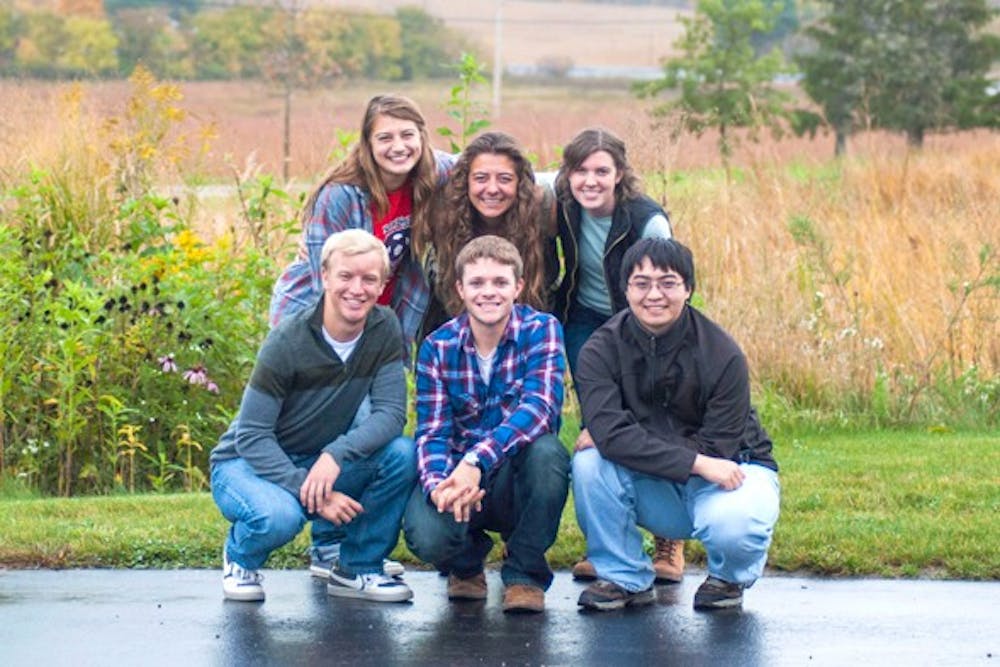By Julia Oller | Echo
In an effort to integrate both the economic and environmental aspects of sustainability, Taylor is beginning projects to upgrade several facilities as well as planning a new sustainability major.
Greg Eley, facilities services director, said several major updates to Rediger Chapel, the KSAC and Odle Arena will reduce electricity costs and usage.
The chapel's outdated HVAC system only has two settings: on or off, meaning that it either blasts cold air or heats the building with no in-between. The new system will be digital, allowing for greater control of the chapel's temperature. Not only will the project make chapel-goers more comfortable, it will save approximately $10,000-$12,000 on electricity costs per year.
Rebates from Vectren Corporation and American Electric Power (AEP) will provide the bulk of the upgrade's funding.
Other projects include switching the lights in the KSAC and Odle to LEDs. According to Eley, supplementing the change with actions such as turning off lights will save the buildings between $10,000 and $15,000.
Integrating sustainability and savings is an imperative of stewarding the earth, according to chair of the Earth and Environmental Science (EES) Department Michael Guebert.
"We don't make any decision based on just environmental or just finances, you have to address them both," Guebert said.
Student demand guides Taylor's sustainability decisions. Eley said that although there are a number of projects that would save energy and money over the long term, they would require more investment up front. If students ask for the changes, however, the administration will listen.
One student group made it their mission to increase awareness of sustainable principles among their peers. Nine sustainability assistants (SAs) and one graduate assistant plan events such as the annual energy competition to help students connect larger ideas to personal actions.
Sophomore Meghan Sulka, an SA since the program began in the fall of 2013, advocates for student involvement. Without the SAs' enthusiasm, she believes others would not follow.
"People feed off of your motivation and your inspiration," Sulka said. "If you're in it, you've got to be all in."
Spreading the word about sustainability is one of Guebert's goals for sustainability education, as explained in the EES department's 2013 vision document, "Bringing Education for Sustainability to Taylor University."
The document lists five objectives that derive from the EES department's recent academic review.
One significant addition to the department is a major in sustainability studies. Still in the developmental stage, Guebert aims to offer the major for the first time in the fall of 2015.
Although the EES department will administer the major, it will include courses from other departments tailored to emphasize sustainability.
"Sustainability is not an environmental science topic," Guebert said. "It is in everything."
Guebert hopes that sustainability at Taylor will ultimately move beyond campus to impact the wider community. Some of these connections have already formed, spreading across Grant County.
Eastbrook Alternative Energy Group (EAEG) was created in 2010 to "promote alternative energy opportunities for the Eastbrook Community School Corporation," according to the group's mission statement. Former director for Taylor's Center for Research and Innovation Don Takehara and former sustainability coordinator Kevin Crosby were on the board for the group.
EAEG was responsible for installing a total of 60 vertical wind turbines on top of three schools and one community center from Matthews to Marion.
According to Bill Wiley, president of Our Town Upland, students from the Computer Science Department are also creating a program to interpret the data from the turbines. The data will be displayed on monitors in the schools.
"Every time kids come to school, they see those turbines and it creates an awareness," Wiley said.
Whether it involves turning off a dorm room lamp or analyzing the wind speed across a 15-mile swath of Grant County, Sulka is positive about the state of sustainability at Taylor.
"I think we're a university filled with potential," Sulka said.





